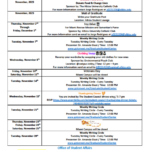Youth at risk for anxiety, depression, somatization, stress related and similar disorders, as well as youth at risk for disruptive, impulse-control or conduct disorders show different types of symptoms and behaviors that require unique, specialized treatments. Yet, the early symptoms of these disorders share common underlying mechanisms rooted in negative affect (Clark & Watson, 1991), as in anxiety sensitivity, aggression reactivity, or cognitive rumination (Dros, van der Does, Antypa, Zitman, van Dyck, et al. 2012) that may contribute to the formation of a negative self-concept (Ybrandt, 2008). Depressed students typically think less of themselves than non-depressed students (Tarlow & Haaga, 1996). Similarly, students at risk of failing academically, suffering strife at home, or enduring poor living conditions are likely to develop negative self-concepts. Having a negative self-concept increases adolescents’ risk to develop conduct problems or aggressive behaviors that often result in disciplinary actions at school (Taylor, Davis-Kean, & Malanchuk, 2007).
We offer a solution in a program for adolescents at risk that targets these early symptoms before they worsen. The Teaching Responsible Behaviors to Adolescents (TRBA) is a secondary prevention program for adolescents aged 12 to 18 and their parents, housed at the Goodman Psychological Services Center. The TRBA program’s clinical aim is to treat early symptoms to prevent them from becoming mental health diagnoses. As indicated, the program targets early identification of risk and provides psycho-educational interventions rooted on elements of evidence-based treatments.
The TRBA program lasts 10 weeks, and it has the objective to decrease negative emotions and increase adolescent resiliency, minimize conflict at home, disciplinary problems at school, and improve self-efficacy, self-control and responsibility. We screen adolescents to assess their fit for this program. If they qualify, adolescents and their parents receive a free evaluation with reliable and valid psychological instruments. We repeat this evaluation two more times: at the end of treatment, to assess adolescent progress, and at 3 months after treatment. At the 3-month follow-up, the family is eligible to receive 1 – 3 booster sessions to solidify the strategies they learned during the program. The TRBA program goals are as follows:
Adolescents:
- Improve competence in school, as measured by increases in self-efficacy for self-regulated learning and self-efficacy for academic achievement.
- Increase positive affect and decrease negative affect, as evidenced by improved energy, concentration, and engagement in joyful activities.
- Decrease general anger and hostility, including reported incidents of verbal and physical aggression.
- Decrease number of depressive symptoms in terms of disturbed mood, hedonic capacity, vegetative functions, self-evaluation, and interpersonal behaviors.
- Improve adolescent differentiation in the family system by strengthening their identity while managing the process of separation-individuation.
- Show decreased symptoms of anxiety, somatic complaints, and withdrawal, and improved social functioning and general adaptability.
Parents:
- Improve parental monitoring and structure at home and increase emotional closeness with their children. These improvements are likely to increase parental satisfaction.
- Decrease anxiety about adolescent’s increased autonomy and increase comfort about their parental role.
- Improve parental perception of adolescent emotionality (internalizing), anger, aggressive, and disruptive (externalizing) behaviors, with increased social functioning and adaptability.
For more great content, visit the Albizu University Facebook page and Instagram account, too!







I am interested in taking the program overseas, How can we make this happen? Im a current student of the Albizu’s PsyD Program.
Hi Victor, try reaching out to Dr. Irma Barron at ibarron@albizu.edu for answers to your questions about the TRBA program.
Excellent article. Congrats to Dr Barron. Excellent professor.